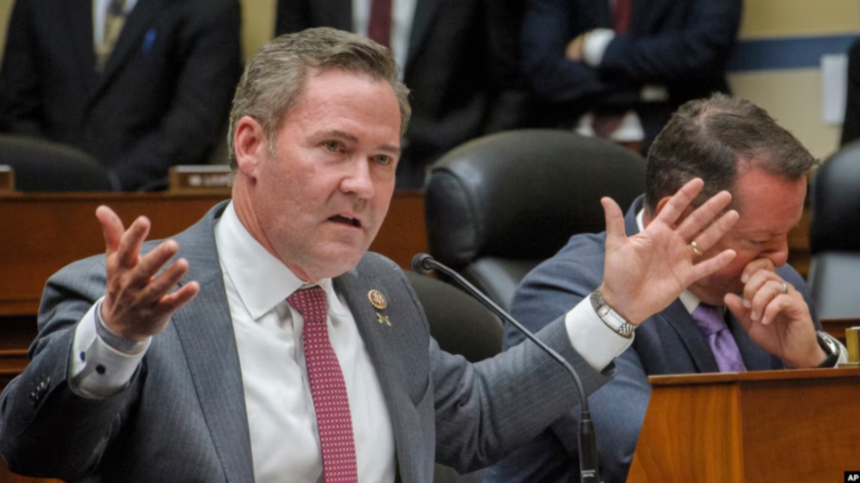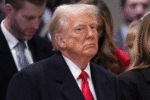Leading Republican lawmakers in the U.S. House of Representatives say that discussions are beginning in Congress regarding Russia’s war in Ukraine, in an effort to fulfill the campaign promise of President-elect Donald Trump to bring the conflict to an end.
The lawmakers told the U.S. Voice of America service that they are optimistic that Trump can achieve his goal.
Republican Representative Mike Waltz, who was appointed by Trump this week as national security adviser, told VOA that “the president has been clear that both sides need to come to the negotiating table, and he is focused on ending the war, not continuing it.”
Waltz also stated that while Trump did not speak specifically about the war in Ukraine during a meeting with lawmakers on Wednesday, discussions on the issue are happening “on the other side,” but he did not provide details.
Republican Representative Mike Rogers, who serves as chairman of the House Armed Services Committee, said he believes in Trump’s ability to negotiate a ceasefire.
“I expect the president to negotiate a ceasefire by the end of the year,” he told VOA.
When asked how the United States would pressure Russia to de-escalate, Rogers said, “I have an idea, but I won’t go into details about it.”
U.S. media reported that last week Trump had a phone conversation with Russian President Vladimir Putin, asking him not to escalate the war. The news was initially reported by The Washington Post. However, the Kremlin later denied that such a call had taken place.
Republican Representative Michael McCaul, chairman of the House Foreign Affairs Committee, who has been a strong supporter of U.S. military aid to Ukraine, told VOA that Trump wants to maintain “a very strong military presence in Europe,” as part of efforts for deterrence, which would ultimately lead to a negotiating period.
However, he warned that he does not believe Ukraine is currently in a position to negotiate successfully with Russia.
Moscow and Kyiv have been engaged in intense battles in eastern Ukraine, and there is increasing uncertainty over how Trump’s presidency will affect the war and whether both sides will be pushed toward negotiations. Analysts say both sides are looking to expand the territory they control before any negotiations take place.
When asked how the United States could exert pressure on Russia to come to the negotiating table, Republican Representative Tom Cole told VOA that “they need to be convinced about what is in their best interest.”
Cole said the war has been a catastrophe for Russia, pointing out that the conflict pushed Sweden and Finland to join NATO, the Western military alliance formed in 1949, to offer collective security against the Soviet Union.
He noted that discussions in the House of Representatives have not yet led to any final plan for the Russia-Ukraine war but added that “there is hope that President Trump can bring this conflict to an end quickly—the most severe conflict in Europe since 1945.”
Trump has not yet provided details on how he intends to fulfill his campaign promise to end the war quickly. During a meeting with Ukrainian President Volodymyr Zelenskyy in September, Trump said, “I may be able to do something that’s good for both sides.”
When asked at that time whether Ukraine should cede some of its territory to Russia to end the war, Trump said, “We will see what happens.”
Vice President Kamala Harris said during the election campaign that Trump’s suggestions for creating a demilitarized zone between Russia and Ukraine, along the current battle lines, “are not peace proposals.”
“Those are proposals for surrender, which is dangerous and unacceptable,” she said.
U.S. Secretary of State Antony Blinken reassured Ukraine and its NATO allies on Wednesday that Washington remains committed to positioning Ukraine “in the strongest possible position” in the coming months under President Joe Biden’s administration.
“President Biden has pledged that every dollar we have available will go to Ukraine by January 20,” Blinken told reporters at NATO headquarters in Brussels on Wednesday.
Trump told reporters in September that his plan to end the Russia-Ukraine war “was not surrender.”
“What my strategy is, is to save lives,” he said.







